Before we even fall in love with someone, we spend all our time trying to figure out how to get into a long-term relationship. We go on dates with them, build an emotional connection, confess our feelings, discuss things about our past and present, have open communication, and then decide if this person will be compatible enough to spend the rest of our life with.
In the midst of all this, we forget that lifelong relationships aren’t just about having the same music taste or enjoying the same cuisine for dinner. It’s about the little things like caring for each other, helping one another grow in all spheres of life, and making your partner feel like they are seen and heard.
In this article, Dr. Gaurav Deka (MBBS, PG diplomas in Psychotherapy and Hypnosis), an internationally acclaimed Transpersonal Regression Therapist, who specializes in trauma resolution, and a mental health and wellness expert, writes about what it takes to build a successful long-term relationship.
What Is A Long-Term Relationship?
Table of Contents
Any relationship that lasts two years or longer is considered a long-term partnership. The duration of a relationship certainly brings in an element of comfort and security. However, it does not mean that things will magically become easier once you have been with someone for a considerable amount of time.
While the love grows, sustains, and becomes more comforting than ever, you cannot stop putting effort into the relationship as you did during the early stages of the relationship if you want the bliss of togetherness to last. So, what makes a relationship last? Here are the 5 essential traits of every lasting and healthy relationship:
- Mutual trust
- Mutual respect and effective communication
- Affection and intimacy
- Being a supportive partner especially when times are tough
- Irreplaceability
According to a survey of more than 800 people, it was found that long-term and short-term relationships are initially indistinguishable. But people end up in short-term relationships when they are “just a little” attracted to the other person. A little attraction is enough to keep having sex. However, this attraction doesn’t last for long. Whereas, long-lasting partnerships are the ones that start as especially exciting and sexy and grow into something stable and lasting.
Long-Term Relationships And Mental Health
Once the honeymoon phase fades, a power struggle takes hold between partners. The path to long, lasting love entails overcoming this power struggle and establishing a deeper emotional connection with the help of open communication, understanding, and compromise. That’s why there is a direct correlation between mental health and relationships.
A study proves that couples who reported more satisfaction in their relationships also reported being happier and having higher self-esteem. A positive and healthy romantic relationship uplifts the mental health of both partners. It positively impacts your growth. Whereas, a toxic relationship negatively impacts the sense of self as well as the emotional well-being of the people involved. The more you ignore the red flags, the more damaging it is to your mental health.
Long-term partnership with a significant other isn’t just something most human beings crave, it also directly impacts the quality of life. That is why it becomes imperative to understand what it takes to build a holistic, wholesome bond with a romantic partner that will stand you in good stead for the long haul whilst also changing the way you view yourself and the world, for the better.
Related Reading: How To Manifest Love In Your Life – 5 Proven Ways
6 Dos For Successful Long-Term Relationships
We don’t pay nearly half as much attention to what makes a relationship last as we do to figuring out how to get into one. When we catch feelings for someone, so much of our energy, time, and effort goes into winning over that romantic interest.
But what about turning that exciting new romantic connection into a long-lasting alliance? Not many people consciously think about what it takes to navigate the long-term relationship stages and sustain it. That’s why we are here to offer you some pointers to keep the spark alive in your love life.
1. Keep the spark alive
It’s easy to get carried away and take each other for granted when you have known each other for so long. But if you go down that road, it won’t be long before you realize that there is something missing in your relationship despite the love you feel for each other. This neglect is what leads either or both partners to surrender to temptations and form connections, be it emotional or physical, outside the relationship.
Keep the relationship fresh by doing little things for your partner. It’s never the wrong time to buy your significant other flowers and presents. You don’t have to indulge in extravagant gestures. Little acts of love every now and again are among the most bankable ways to strengthen a relationship. Try to tap into each other’s love languages to make one another feel special and loved.
2. Maintain your individuality
As you go through the stages of building a lasting relationship, there comes a point where it can start to feel as if you and your partner are the same people. Since you spend so much time together, eat similar things, listen to similar music, and might even start quoting each other a little too much, it is possible to start feeling enmeshed with one another. Some people may think that’s a good thing and natural in relationships, but it can turn unhealthy very soon.
Living with someone for a long time doesn’t mean that you inevitably lose your identity. In fact, that is one of the signs of a codependent marriage or relationship. It starts small. You start using their vocabulary, then you start liking the food they like, and eventually, your way of thinking also changes. You have a hard time figuring out where your partner ends and you begin because you are so entwined that there is no individuality left.
3. How to make a relationship last? Commit, like never before
If you know they’re the one, well then, you must work toward eliminating the lingering doubts and apprehensions. Frankly, this is relationship 101 for anyone. The moment two people enter the exclusive dating realm, know that commitment is a big part of it. Consider commitment the very crux of a successful relationship.
One of the most vital pieces of long-term partnership advice is to not let the fear of commitment cast a shadow over your bond. If you love the person you’re with, don’t be afraid of jumping with both feet. Don’t let apprehensions about the future or the fear of how commitment will change your life get in the way of your relationship achieving its full potential.
4. Work through your problems in a civil manner
Conflicts and disagreements are bound to happen in any long-lasting partnership. No relationship is free of them. However, what differentiates a lasting relationship from one that’s standing on its last legs is how partners work through these differences. Never try to sweep problems under the rug. The minute you ignore these problems or your romantic partner’s worries regarding the relationship, you will find more complicated issues lying in wait.
When you are in an argument with a long-term partner, talk to them with an open mind and respectfully. Here are some more tips for fighting fair in a marriage or in a long relationship:
- Listen to the other side of the story empathetically
- Prioritize open communication where you can be honest about your feelings
- Refrain from name-calling, yelling, and mocking
- Accept that both of you can be right at the same time
Related Reading: 8 Conflict Resolution Strategies In Relationships That Almost Always Work
5. Learn how to be each other’s support system
Every successful long-term relationship has two things in common:
- A supportive long-term partner who has your back at all times and helps you grow both personally and professionally
- A partner who prioritizes your mental well-being as much as your physical health
You need to support your partner in every aspect of life if you want the relationship to survive the toughest of times. Hear each other out, try to be as vulnerable as you can, be as honest as you can possibly be, and encourage your partner along every step of the way. Try to be a supportive partner so that your partner can see themselves making the “till death do us part” promise to you and fulfilling it too.
6. Give each other space
If you are the kind of person who thinks being clingy is the same as having emotional intimacy, then you couldn’t be more wrong. It is important not to stifle your partner by being around them all the time. Similarly, don’t expect that your partner will hang around with you 24×7. It’s unhealthy and not good for your mental wellness either. Practice self-care by distancing yourself from your partner for some time every day and using this time to do the things you did before entering the relationship with them.
What long term-relationships mean to you and your partner may be different. You may think it’s good to do everything together. On the other hand, your partner may think that a healthy relationship means having healthy boundaries. That’s why it’s important to establish these boundaries as early in the relationship as you can. It’s perfectly normal for your partner to meet people without you and outside of your circle. Accept their friends, hobbies, and life outside the relationship, and build your own.
6 Don’ts In A Long-Term Relationship
Now that we have touched upon the cornerstones of a successful relationship, it’s time to switch to the other side. Let’s take a different tangent altogether and talk about the things that you should never do in a stable relationship.
1. Taking the relationship or your partner for granted
Every relationship is a work in progress. It requires constant labor, designing, and molding. Things usually go (possibly) wrong when laziness invades. Once you have been with someone a long time, it’s easy to assume that they’re not going anywhere, that your relationship won’t even end. FYI, it can end. Relationships too expire and sometimes sooner than you realize, if not kept fit, strong, and free of lethargy. Complacency in relationships, therefore, is the commonest contaminant.
This is the main reason why people have problems in their relationships. When you’ve been in a relationship for over a decade, you tend to take each other for granted. You become so comfortable with everyday life that you don’t bother trying to reignite the spark. Over time, your connection begins to weaken. You forget that you share a life with your partner and vice versa. You may both drown yourself in work and other responsibilities and stop spending quality time with your significant other. As a result, your relationship suffers and begins to wither away.
Related Reading: How To Not Be A Dry Texter – 15 Tips To Avoid Being Boring
2. Letting performance pressure get the better of you
Performance pressure can be a big impediment to intimacy in a relationship. Some people develop it during the honeymoon phase while others find themselves in its spate despite having been in a stable relationship for years. This adulterant is not just restricted to sexual competence. Sure, sexual performance anxiety is one part of it.
This tendency may very well spill over to a relationship and our presence in that relationship may merely become a way of performance, where we are clearly not ourselves but are only trying to achieve external goals. Open and honest communication is the only way to tide over this stumbling block, be it in the bedroom or outside of it.
3. Making your partner feel insecure
People feel insecure about many things. It could be their physical appearance, facial features, income, or they could be insecure in a relationship vis-a-vis their ability to form and sustain a healthy bond or their value as a partner, and so on. In a relationship that has survived for over a decade, you ought to be more understanding of each other’s insecurities, fears, and traumas.
You can admire a person all you want for their perfection but you can only truly love them when you accept their flaws. If your partner is insecure about something, let them know that you love everything about them, their strength, weaknesses, flaws, and insecurities. Preying on a significant other’s vulnerabilities is the biggest hindrance to your ability to build a long-lasting marriage/relationship.

4. Acting out of paranoia and suspecting your partner
Suspicion can ruin a stable relationship. If you have a doubt that your partner or spouse is lying to you, then confront them immediately. Don’t let mistrust breed in your relationship. If you don’t resolve this matter immediately, suspicion can turn into a parasite that renders your relationship hollow. When you keep suspecting your partner of infidelity even though they are loyal, they may stop sharing things with you. This lack of trust may lead to hiding and lying, which can end up harming the relationship severely.
Related Reading: Trust Issues – 10 Signs You Find It Difficult To Trust Anyone
5. Controlling your partner
A controlling partner often appears as protective and loving at first. But eventually, you begin to feel stifled, and your partner’s lack of confidence in your ability to deal with your own life can lead to a lack of confidence and self-esteem. This mistreatment is bound to take a toll on your mental health.
The signs of a controlling partner are so subtle that you may not notice them in the beginning. A controlling relationship screams imbalance. It’s all about one person’s wishes, needs, and wants. If you don’t act on this immediately, it can soon turn into an emotionally abusive relationship. When you realize you are being controlled, the revelation, the confrontation, and the aftermath will take you on a rollercoaster ride. Some of the signs of a controlling partner include:
- Your partner doesn’t like to be excluded from your everyday plans
- They want to know what you are doing at all times
- There is no privacy, healthy boundaries, or personal space
- When you do something without them, you are made to feel guilty
- Know that your partner has a life of their own
6. Do not compare your partner to others
In the time and age we live in, it’s not unusual to get carried away with other people’s lives and be envious of their lifestyles. The comparison trap is real and it is getting the better of us day by day. Social media makes everyone insecure about everything. We look at an influencer’s body and go on a crash diet. We look at people flaunting their perfect relationships and start comparing theirs to ours. Allow me to clear a myth for you, no relationship is ever perfect.
It’s just two people trying their best to keep each other happy. Not out of any obligation but out of love. And where there is love, there is no place for comparison. Don’t compare your partner with your friend’s partner or don’t compare your relationship with the ones you see on social media. No two relationships can be the same because no two people are the same. It’s as simple as that.
Key Pointers
- Always keep the romance alive by tapping into each other’s love languages and by frequently going on date nights
- Do not compare your relationship with other relationships
- Keep your long, lasting love healthy by sorting out differences in a fair and civil manner
With all these relationship mistakes to avoid, trust us when we tell you that if you consciously work on these, your relationship will take a turn for the better. What’s even more significant is that when you really adhere to these things not to do in a relationship – you are also creating a better version of yourself. Use this as a short and easy manual to love and life and you will be good to go.
FAQs
Common long-lasting romance problems are frankly abundant. They can start at miscommunications and misunderstandings and go all the way to constantly doubting your partner’s intentions, having low self-esteem and using that to attack your partner, and so on.
Long-term partnerships fail as soon as the couples think it’s time to fold their arms and sit back and relax. Once the comfort sets in, a couple might start to get lazy or too satisfied and not indulge in the same kind of chase or effort anymore. Moreover, any kind of breach of trust, insecurity issues, or anger issues can do the same.
Communication Problems In Relationships – 11 Ways To Overcome
Ask Our Expert
You must be Logged in to ask a question.





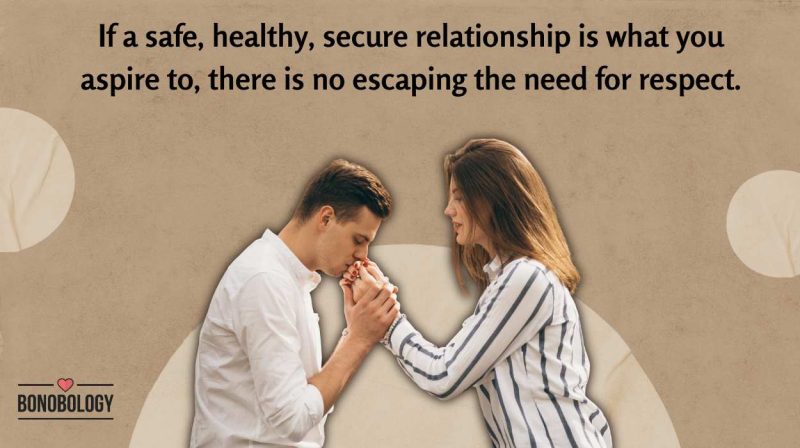


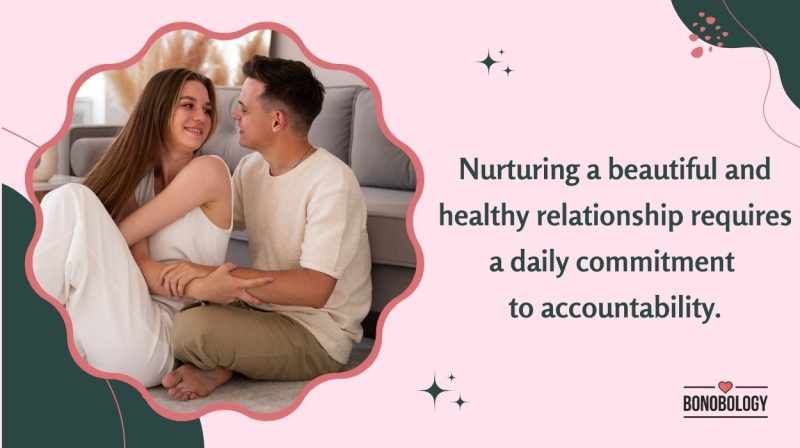
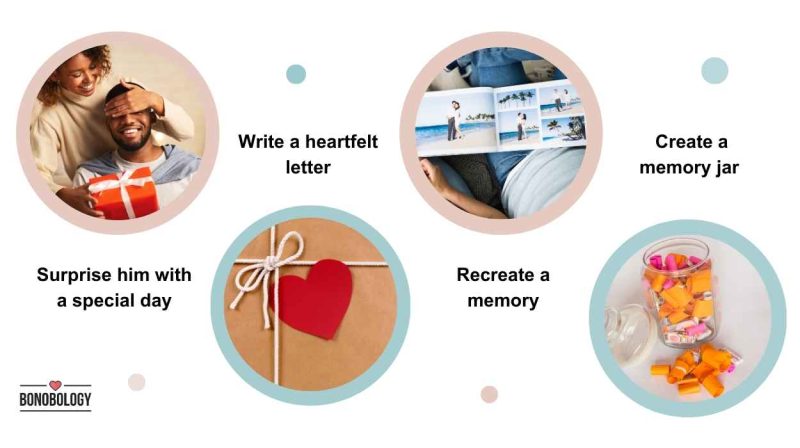






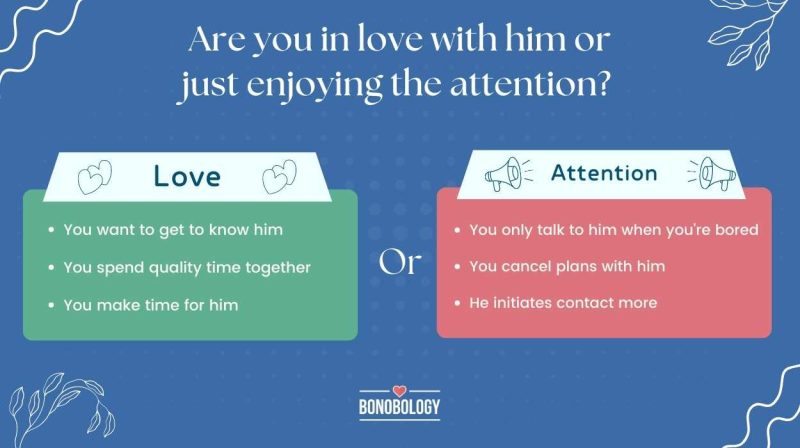
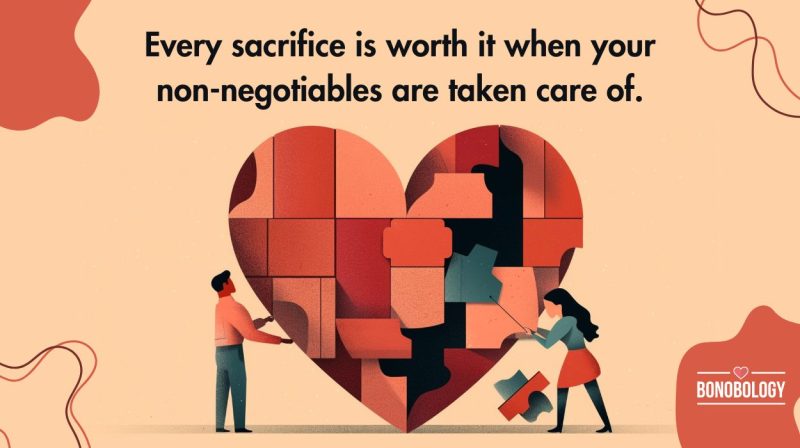
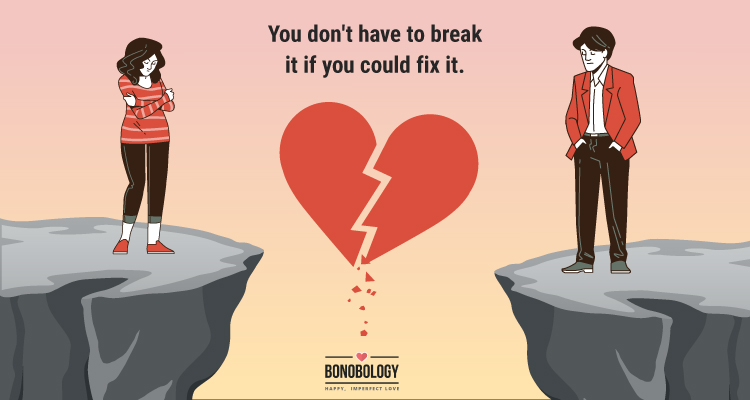
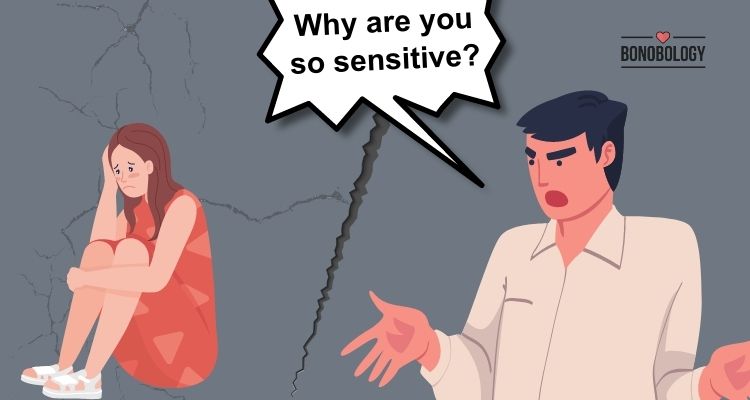


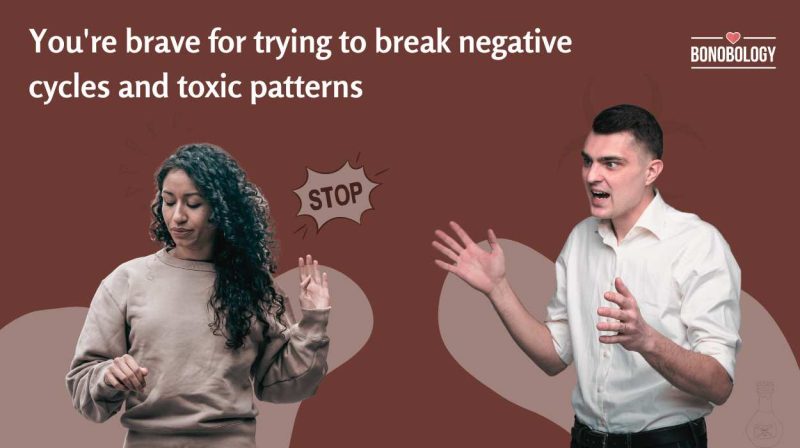
I so agree with each and every point stressed on here.
Though I do think also, that we need to keep working on ourselves according to the times and our partner, to become better people and to give our best to the relationship. There’s a fine line between changing ourselves for the better and forgetting ourselves in a relationship. One brings positive outcome, while the latter brings negativity.